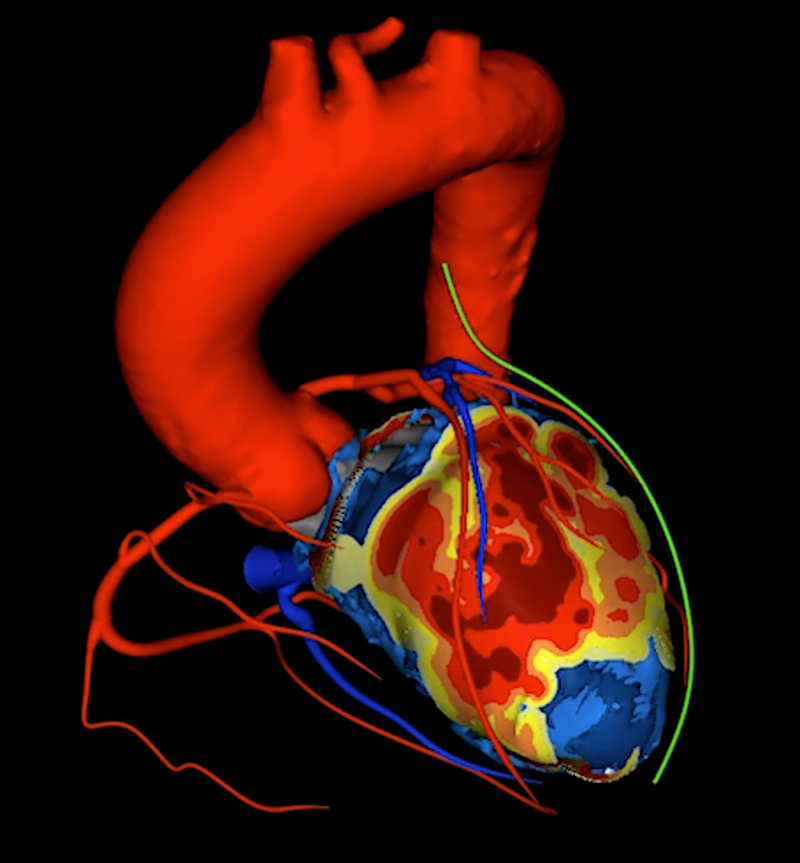Study Investigates Sensitivity of Radiopharmaceutical to Detect Acute Myocardial Inflammation
 The Lausanne University Hospital (CHUV) in Switzerland has dosed the first patient in phase II clinical study investigating the sensitivity of PENTIXAFOR (Boclatixafotide) in a cardiovascular and inflammatory setting. It is the first time that Eckert & Ziegler’s proprietary CXCR4-compound is used in an advanced clinical test in a non-cancer indication, opening the way for a broader use of PENTIXAFOR outside of oncology.
The Lausanne University Hospital (CHUV) in Switzerland has dosed the first patient in phase II clinical study investigating the sensitivity of PENTIXAFOR (Boclatixafotide) in a cardiovascular and inflammatory setting. It is the first time that Eckert & Ziegler’s proprietary CXCR4-compound is used in an advanced clinical test in a non-cancer indication, opening the way for a broader use of PENTIXAFOR outside of oncology.
The Gallium-68 based radio-diagnostic PENTIXAFOR promises to significantly improve the sensitivity in the detection of acute myocardial inflammation, which may allow for future early clinical management of patients with myocarditis, avoiding the progression to more severe stages.
To investigate the potential of PENTIXAFOR the CHUV will recruit, on its own account, up to 60 patients in a so-called investigator initiated study (ISS). Eckert & Ziegler, owner of the rights to the CXCR4 targeted tracer used in this study, supports the CHUV team under Professor John Prior and Professor Niklaus Schaefer by providing the compound. Also, part of the CHUV team is Professor Margret Schottelius, Head of the Translational Radiopharmaceutical Sciences lab at CHUV/Agora, who was involved in the preclinical development and clinical translation of PENTIXAFOR and Dr Judith Delage, Head of the Radiopharmacy Unit, in charge, together with her team, of the clinical transfer and of the GMP internal production.
Acute myocardial inflammation is a heterogenic inflammatory disease of the heart muscle involving different clinical pathologies and outcome. The CHUV study focuses on the three entities acute cellular cardiac allograft rejection, cardiac sarcoidosis and the immune checkpoint inhibitor induced myocarditis, as non-invasive diagnosis remains challenging for these life-threatening conditions with current standards.
“Including cardiovascular indications in our prognostic development program in addition to oncology demonstrates the exciting potential of PENTIXAFOR,” comments Dr Jens Kaufmann, co-founder and general manager of Pentixapharm. “We are delighted to collaborate with an excellent center such as the CHUV in this field, led by Dr Christel Kamani as principal investigator.”
PENTIXAFOR is being developed by Eckert & Ziegler’s subsidiary Pentixapharm GmbH primarily as a superiorly sensitive diagnostic for rare blood cancers, among them myelomas, lymphoma and leukemia.